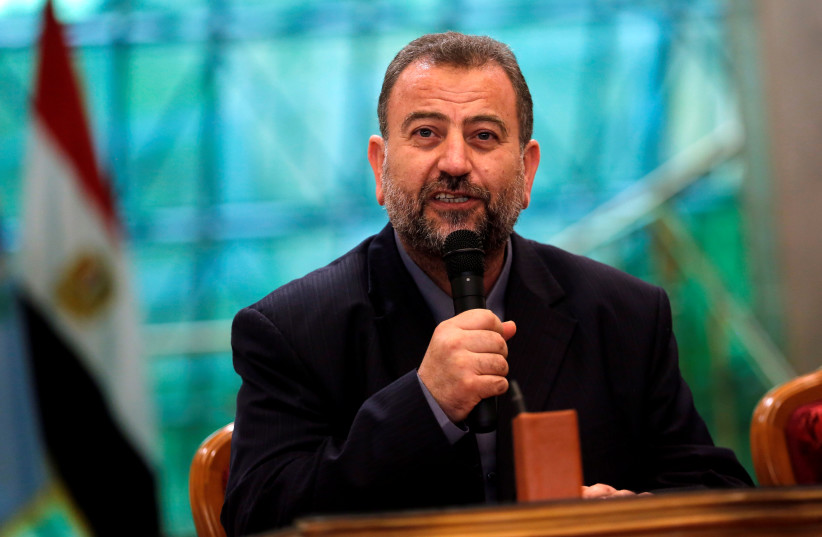Mehdi Hasan took to X, shortly after Israel allegedly eliminated Hamas deputy head Saleh al-Arouri in an airstrike on Lebanon on January 2, to claim that there is a double standard in which countries are allowed to eliminate threats in other nation’s territories.
“Ever since 9/11, we have just taken it for granted that certain countries can send drones or bombs into foreign sovereign countries, across national borders, to kill people they’ve decided – without an arrest or trial – are guilty of crimes,” Hasan wrote. “Wonder how Americans would react if the Cubans sent drones to take out people they consider to be terrorists hiding out in Florida."
“The US shelters a bunch of people wanted for or accused of war crimes and terror around the world. But hey, our sovereignty is non-negotiable!"
“This tweet has triggered a few folks, including Islamophobes who want to accuse all Muslims of being Hamas. I have condemned Hamas’s crimes since Oct 7th & before; the issue here is not Hamas, but why it’s ok for some countries to do drone strikes on enemies abroad but not others.”
While Hasan only mentions the conflict between Israel and Hamas and that of the United States and Cuba, a number of countries conduct airstrikes in foreign territories. For example, Turkey has regularly targeted Kurdish groups, which it considers terrorist groups, in Iraq. Additionally, both the US and Russia have conducted airstrikes in Syria against ISIS forces.
Additionally, Hezbollah has repeatedly fired rockets and drones into Israel’s national territory, which further complicates understanding on who Hasan is referring to in his comment “why it’s ok for some countries to do drone strikes on enemies abroad but not others.”

The elimination of Hamas’s deputy
Deputy Hamas leader Saleh al-Arouri had long expected the Israeli drone strike that security sources said killed him in Beirut on Tuesday, three months after his group's surprise cross-border assault that triggered a devastating war in Gaza.
"I am waiting for martyrdom and think that I lived too long," he said in August, as he urged Palestinians in the West Bank to take up arms amid a surge of violence.
His assassination comes at a defining moment for the organization, as Israel attempts to eradicate it in retaliation for the October 7 attack, when Hamas fighters rampaged across the border, killing 1,200 people and seizing 240 hostages.
Israel has long accused him of lethal attacks on its citizens, but a Hamas official said he was also "at the heart of negotiations" over the outcome of the Gaza war and the release of hostages conducted by Qatar and Egypt.
"Whoever did this did a surgical strike against the Hamas leadership," said Mark Regev, a senior adviser to Israel's prime minister.
Though less influential than Hamas's leaders in Gaza, Arouri was seen as a key player in the movement, masterminding its operations in the West Bank from exile in Syria, Turkey, Qatar and finally Lebanon after long stints in Israeli prisons.
As the terrorist group's senior official in Lebanon, he played a big role in cementing Hamas's relations with the Lebanese Shi'ite group Hezbollah, and through it with Iran, the main backer for both groups.
Arouri met Hezbollah leader Hassan Nasrallah several times, as well as Iranian officials in Lebanon, and Hamas sources said he worked with them to coordinate positions regarding the conflict in Gaza.
Hamas confirmed his death but has not otherwise commented. Islamic Jihad, an allied group, swore revenge for his killing in a statement on Tuesday, saying it would "not go unpunished."
Within Hamas, Arouri was described as a leading advocate of reconciliation between rival Palestinian factions, enjoying a good relationship with Fatah, the party of Palestinian President Mahmoud Abbas that holds sway in the West Bank.
Arouri helped found the group's military wing, the Izz el-Deen al-Qassam Brigades, and Israel accused him of orchestrating deadly attacks over the years. It says he was behind the kidnapping and killing of three Israeli teenagers in the West Bank in 2014, an act that triggered a seven-week Israeli assault on Gaza that killed 2,100 Palestinians.
He was one of the senior Hamas officials behind the group's strong expansion into the West Bank, where its gunmen have carried out a string of attacks on Israeli settlers over the past 18 months.
Several shootings last year took place shortly after Arouri had made televised threats against Israel.
Hamas chief Ismail Haniyeh said on Tuesday that assassinating its top official Saleh al-Arouri in an Israeli strike in Beirut is a "terrorist act," a violation of Lebanon's sovereignty and an expansion of Israel's hostility against Palestinians.
Haniyeh, in a televised speech, mourned al-Arouri and two leaders of Al Qassam Brigades, Samir Findi Abu Amer and Azzam Al-Aqraa Abu Ammar, all of whom were killed on Tuesday night in an Israeli drone strike on Beirut's southern suburbs of Dahiyeh.
Who is Mehdi Hasan?
Mehdi Hasan is a British-American broadcaster and author who previously had his own show on Peacock and MSNBC. He has worked for a number of television and news agencies including as a producer on ITV's Jonathan Dimbleby programme, deputy executive producer on Sky's breakfast show Sunrise, editor of news and current affairs at Channel 4 and a presenter on Al Jazeera's English news channel.
